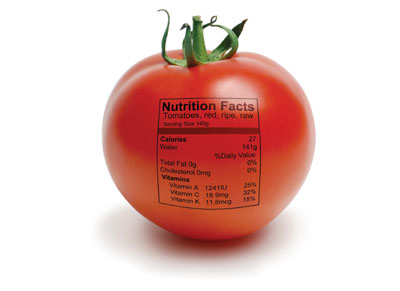With an estimated 47 million women set to experience menopause for the first time, it is predicted that, by 2030, the world population of both menopausal and postmenopausal women will reach 1.2 billion.1
An article in Post Reproductive Health says that nine in ten women were never educated about menopause and more than 60% only started looking for information about it once their symptoms started, according to a UCL-led study.2
In addition, the impact of menopause on women has been critically underreported in the media with many turning to social media (33.1%) and friends (49,1%) for advice.2
Research conducted by Dr Tatiana Rowson examined the discursive representation of menopause and work in the British media.3 The study highlighted that the 2993 articles that appeared in the national press between 2010 and 2021 predominantly warned companies about the “risks” posed by menopausal employees.
The inference is that menopause is an event that is likely to suddenly change the lives of working women for the worse. When menopause is continually portrayed with negative stereotypes, it can reduce this stage of life to a time of decline and loss, exposing women to gendered and/or ageist attitudes.4
This not only makes the unbiased reporting about menopause important, it also fuels the need for the broader health and wellness industry to focus on the development of ingredients, products and supplements that can support menopausal health and its disruptive symptoms.
Most women can expect to spend a third of their lives with menopausal symptoms.
During this period, many health issues and chronic diseases can begin to appear that can affect the ability of women to “live in health.” The health and wellness sector should focus on implementing prevention strategies to manage health issues, including cholesterol and its impact on cardiovascular disease.5
The hidden impact of menopause on cholesterol
Research tells us that although males between the ages of 16 and 44 are more likely to have raised cholesterol levels than women (43% compared with 46%), there is an interesting change to this statistic.
During the female menopause, up to 77% of women between the ages of 45 and 64 have reported raised cholesterol levels (compared with 67% of men).6

This fact is statistically significant. It conclusively points to the fact that when oestrogen levels drop during perimenopause and menopause, its protective effect on the heart and its ability to reduce the level of “bad” cholesterol in the blood is reduced.
Higher cholesterol markers can indicate a significant increase in the risk of cardiovascular disease, heart attacks and stroke owing to the narrowing or clogging of arteries.6
In addition, at normal levels, oestrogen has an anti-inflammatory effect on the lining of blood vessels. This is an important factor when it comes to reducing high blood pressure, another risk associated with heart attacks and stroke.7
Although cardiovascular disease is often thought to be a men’s health issue, it is one of the leading causes of death in post-menopausal women.8 In fact, the risk of heart attack is five times higher in post-menopausal women than in the premenopausal demographic.9
Cholesterol and cardiovascular disease: a postmenopausal risk
Increases in bad cholesterol can be a contributing factor to cardiovascular disease (CVD), a leading cause of death in women after menopause.
It is estimated that more women die from heart disease and stroke than from the next five causes of death combined … and this includes breast cancer.10 Additional risk factors for CVD include high blood pressure, smoking, obesity and metabolic syndrome.
According to US Cardiology Review, menopause is associated with a progressive increase in total cholesterol and, in particular, an increase in low-density lipoprotein (LDL), lipoprotein-α and triglycerides, and a decrease in high-density lipoprotein (HDL).11–14
Therefore, menopausal women are exposed to a more atherogenic lipid profile than premenopausal ones. Total cholesterol levels peak in women at 55–65 years of age — about 10 years later than the peak in men.
Agents that lower cholesterol levels reduce heart disease risk in both men and women, but it is thought that a larger proportion of women than men are at high risk and are not being effectively treated.
It was shown in a recent survey that only one in four women associates menopause with high cholesterol, leading to a lack of awareness of the need to consider having cholesterol levels checked around the time of menopause.15
Exploring natural and alternative therapies for cholesterol management
Although several over-the-counter, herbal or nutritional supplements may help to lower cholesterol, these are generally not backed by the scientific community. A combination of lifestyle changes, including diet and exercise is a good start.

Eating more foods that are rich in fibre, soy, omega-3 fatty acids and compounds that are similar to cholesterol — such as plant stanols and sterols — can lower LDL or bad cholesterol.
Cutting back on saturated fat is also important. Some of the popular supplements include garlic, with studies showing that it may lower blood levels of total cholesterol by a few percentage points … but only in the short term.16
Another is red yeast rice. Studies indicate that it may help to lower cholesterol, although the US FDA does not allow the promotion of red yeast rice for this purpose.
Several studies have shown that red yeast lowers LDL cholesterol as Monascus purpureus stops the action of an enzyme in the body that helps to make cholesterol.17
In addition, what makes red yeast rice interesting is that it contains chemicals that are similar to prescription statin medications. One of these, monacolin K, has the same makeup as the drug lovastatin. Doctors often prescribe statins to lower LDL cholesterol to reduce the risk of heart disease.18
Shaping the future of menopausal health with science-backed solutions
LPLDL is a science-backed, IP protected, highly innovative probiotic strain. LPLDL provides compelling evidence of its efficacy by acting on internal cholesterol-producing enzymes that break down bile salts; this forces the liver to remove cholesterol from the blood to replenish the body’s bile salt levels.
LPLDL is backed by multiple independent human intervention studies that have been conducted at leading universities.
In a double-blind, randomised and placebo-controlled study at the University of Reading, participants taking LPLDL daily found that multiple cardiometabolic biomarkers were improved, including a reduction in total cholesterol of up to 36%, a lowering of LDL cholesterol by almost 14% and an increase in HDL cholesterol by up to 4.5%.18
Additionally, a 9-week study by the University of Roehampton in hypercholesterolaemic adults noted a significant reduction in multiple cardiometabolic biomarkers when taking LPLDL Findings include a lowering of total cholesterol by 34%, LDL cholesterol by 28%, non-HDL cholesterol by 17% and ApoB by 28%.
Menopausal health will continue to be a serious concern for female consumers; but, as more women talk about this life stage openly, it will continue to drive market growth and increase commercial opportunities for scientifically backed supplement solutions.
By working together, we can impact future innovations in supplements and impact global consumer health.
References
- https://www.maturitas.org/article/0378-5122(95)00968-X/pdf.
- www.ucl.ac.uk/news/2023/apr/nine-ten-women-were-never-educated-about-menopause.
- https://onlinelibrary.wiley.com/doi/full/10.1111/gwao.13021.
- www.henley.ac.uk/news/2023/menopause-has-a-pr-problem.
- https://pubmed.ncbi.nlm.nih.gov/24969415/.
- www.balance-menopause.com/menopause-library/menopause-and-cholesterol-what-you-need-to-know.
- www.bhf.org.uk/informationsupport/support/women-with-a-heart-condition/menopause-and-heart-disease.
- www.ahajournals.org/doi/10.1161/CIR.0000000000000912.
- https://pubmed.ncbi.nlm.nih.gov/25754617/.
- www.ahajournals.org/doi/10.1161/circulationaha.106.179918.
- www.uscjournal.com/articles/menopause-cholesterol-and-cardiovascular-disease-0.
- https://pubmed.ncbi.nlm.nih.gov/16919179/.
- https://pubmed.ncbi.nlm.nih.gov/15070445/.
- www.tandfonline.com/doi/full/10.1080/13697130601114917.
- https://pubmed.ncbi.nlm.nih.gov/18380955/.
- www.webmd.com/cholesterol-management/high-cholesterol-alternative-therapies.
- www.mountsinai.org/health-library/supplement/red-yeast-rice.
- https://probiotixhealth.com/lpldl/#Studies.
